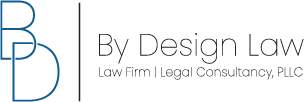Address
800 5th Ave, Ste 101-800
Seattle, WA 98104-3102
Contact
info@bydesignlaw.com
T: 206-593-1519 F: 206-649-1626
How effective is your corporate compliance program?
Navigating your company’s legal obligations in a quickly evolving marketplace is no easy task. Fortunately, you don’t have to do it alone. By Design Law is here to help you ensure legal compliance and streamline your processes to give you a competitive edge.
The more successful and influential an organization becomes, the larger its legal obligations grow—and for good reason. Untethered growth without accountability, especially in highly regulated industries, can cause serious harm to consumers, shareholders, employees, and the company itself.
For corporations across sectors, compliance programs can provide the necessary framework to ensure adherence to legal statutes, regulations, and ethical standards. However, the mere presence of a compliance program does not guarantee its quality or effectiveness.
Many organizations operate under subpar, insufficient systems that present unique dangers to their longevity, yet they struggle to make the necessary changes. One of the reasons that poorly designed compliance programs aren’t replaced in a timely manner is certainly the vast scope of legal expertise required to satisfy federal, state, and local regulatory requirements.
If you need help creating a top-tier corporate compliance program in Seattle, don’t worry—By Design Law is here to help. This article will explore the role, importance, and key components of corporate compliance programs, the steps to developing a strong compliance program, and how an experienced business law attorney can be an invaluable resource in this endeavor.
Whether you need help navigating legal compliance, financial management, business planning, or leadership, our law firm can provide guidance.
Connect with us online to explore the full range of our legal services and offerings.
Understanding Corporate Compliance Programs
A compliance program is a company’s set of internal policies and procedures that help it adhere to laws, rules, and regulations. When effective, corporate compliance programs provide the framework for protecting an organization, its employees, stakeholders, and even consumers, promoting a culture of integrity within the organization.
Corporate compliance programs have a few main objectives:
- Preventing violations. Compliance programs implement policies and training procedures to reduce the risk of legal and ethical breaches occurring.
- Detecting violations. By establishing mechanisms and monitoring systems to identify potential violations, compliance programs can help corporations achieve early detection.
- Responding to violations. When violations do occur, a thorough compliance program provides a framework for how to address, respond to, and rectify violations.
A compliance program that can effectively prevent, detect, and respond to violations is a powerful organizational tool. However, each compliance program’s ability to effectively address violations depends on the quality of its design.
Key Components
To address violations, compliance programs employ numerous policies, processes, training standards, and other key components. Here are a few examples:
- Documented policies, including behavior guidelines, decision-making processes, and outlined procedures for meeting legal requirements
- Training programs that educate employees about legal obligations, ethical standards, internal policies, the consequences of non-compliance, and more
- Monitoring and auditing, including assessments of company operations, internal controls, and areas with potential vulnerabilities
- Reporting channels, including hotlines, direct communication with compliance officers, and anonymous routes, through which employees can relay suspected violations without fear of retaliation
- Enforcement procedures, including the consequences for violations, that are applied consistently across levels
- Leadership in promoting compliance, characterized by active support from senior management
- Continuous improvement through ongoing evaluations that test the program’s effectiveness and encourage adjustments based on evolving risks and developments
Effective compliance programs provide not only legal and financial protections, but also reputation management benefits and greater operational efficiency. These programs also communicate an organization’s commitment to lawful and ethical conduct, especially when promoted by those in leadership positions.
Key Steps to Developing a Strong Compliance Program
The best compliance program for your company may not look like the best program for your competitor’s company. Each compliance program must be tailored to the specific needs and goals of its organization to achieve its goals. When you’re ready to craft a strong compliance program, taking the following steps can help streamline the process:
- Get senior management on board. Without the support of senior management, a compliance program is unlikely to accomplish its objectives. Leadership typically sets the tone for compliance, and the more support they give a program, the more money, staffing, and resources it is likely to receive.
- Conduct comprehensive risk assessments. Organizations face countless internal and external risks that could compromise compliance, and not all of them are obvious. In addition to legal risks, your company should analyze potential vendor and transaction risks to form a complete assessment.
- Establish controls and standards. Your compliance program should develop controls and standards based on the findings of its comprehensive risk assessment.
- Train employees in compliance. Achieving compliance requires employee training and education. Robust training measures also reinforce leadership’s support of a compliance program, increasing its chances for success.
- Monitor your progress. Compliance requirements and regulations are constantly evolving, and corporations that fail to update their operations fall behind. Compliance programs should conduct continuous testing and monitoring, improving their standards as needed.
These broad strokes can provide the framework for a successful compliance program, but they are insufficient on their own. An experienced business law attorney can help you flesh out your corporate compliance program with custom-tailored strategies and goal-directed solutions.
By Design Law: Top Business Law Attorneys in Seattle
At the end of the day, an effective compliance program requires inter-departmental support, resources, and education. It also demands a dedicated legal partner. Luckily, you don’t have to look too far—By Design Law is here to help. Schedule a consultation today to explore your legal options with a trusted business law attorney.
T: 206-593-1519 | F: 206-649-1626
Copyright © 2024. By Design Law Firm & Legal Consultancy, PLLC. All Rights Reserved. Designed by JLT Web Solutions.





